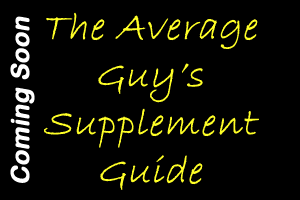Yesterday a question came up in our gym that I thought would be of interest to you. What does the term catabolic or anabolic mean? There are multiple complex chemical reactions taking place in our bodies at any given time, and I am afraid I would have lost you all to TV land if I attempted to pass along too much information. I don't think it as important to understand what chemical reactions are taking place, as it is to understand there is science behind the way we train and the advice we pass along.
Okay, let's get to today's topic. You may have heard the terms “catabolic” or “anabolic”. These are terms that relate to chemical processes that occur in our bodies. They are responses to not only exercise, but illness, stress, diet and even pharmaceutical causes.
Catabolic refers to the chemical reactions that take place when complex molecules are broken down into simpler ones. For example, when muscles are strenuously trained the muscle fibers are damaged. During this process cortisol is released which speed up the breakdown of tissues. The key with training is to reduce the rate of catabolism. If this is successful, anabolism is increased which results in faster recovery between exercise sessions, a better performance during a workout or event and an increase in muscle growth.
Anabolic refers to the chemical reactions that take place when different molecules combine to form more complex ones. This results in creation of new cellular material. This is necessary for growth, maintenance and tissue repair. Anabolic processes refer to the building up of tissues and organs. This could result in increased muscle mass.
Basically, these two different states refer to whether the body is building up tissue or breaking it down. The goal is to try and keep the body in an anabolic state as opposed to catabolic. The way you eat and train will affect the rates of these two different physiological states.
There are a few ways you can help your body remain anabolic vs catabolic. These are:
- Proper nutrition is paramount. You should eat meals every 3-4 hours. Not eating for long periods of time can cause the body to break down tissue for energy creating a catabolic state.
- Never skip breakfast. After sleeping for 8 hours your body is basically in a fasting state. Provide nutrients first thing in order to create an anabolic environment.
- At VWP, we don't do long workout sessions anyway. But, for general fitness purposes, workouts should not be longer than 60 minutes.
Rest and recovery are as equally important as good nutrition and working out. It is during the rest period away from the gym, that the body starts the rebuilding and healing processes that will make you stronger, faster and healthier. That is why your workouts need to be designed and implemented to allow adequate rest and recovery between training sessions.
Train smart, gets lots of sleep, eat well and often – your body will thank you.
Till next time,
Narina
